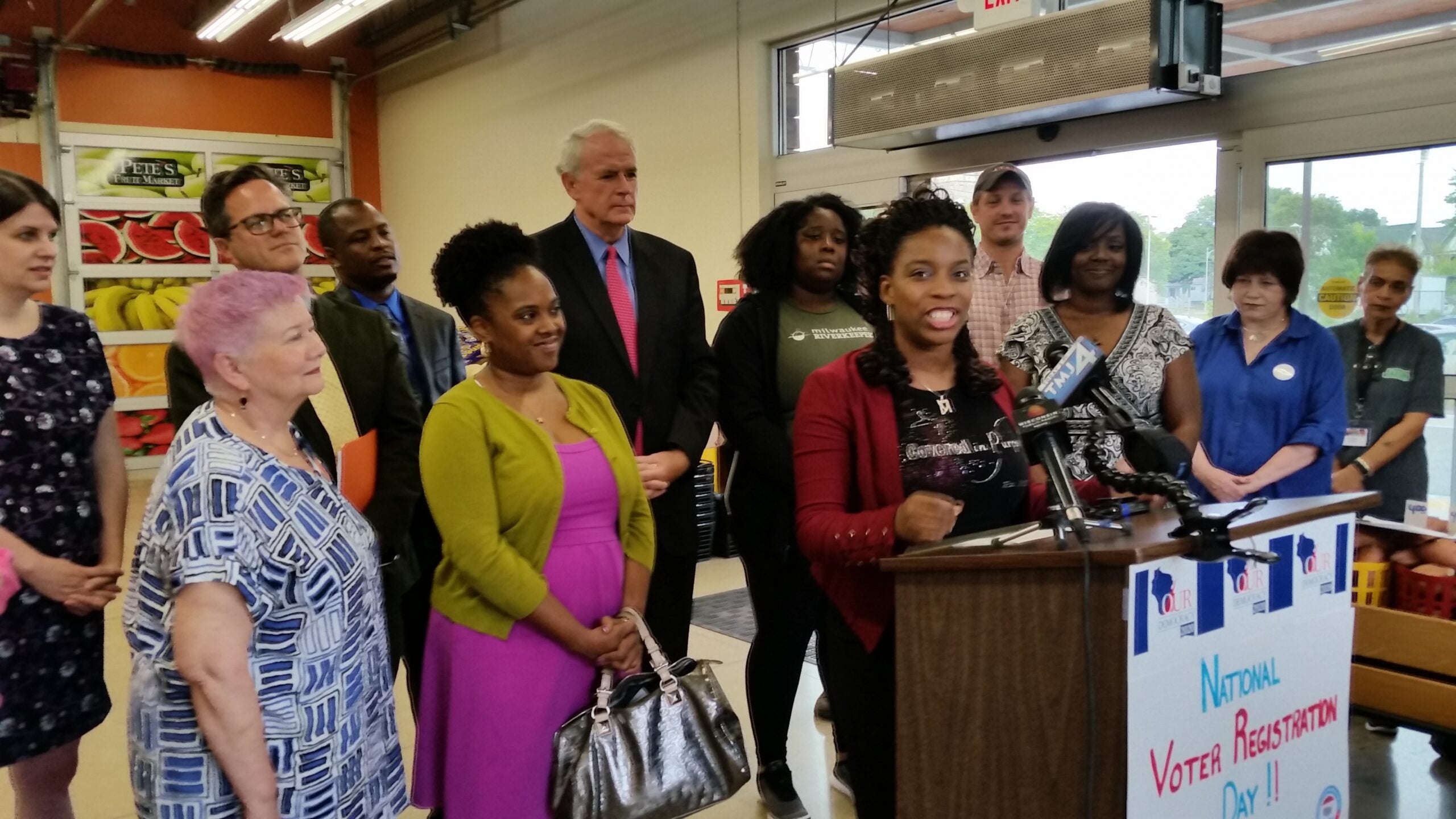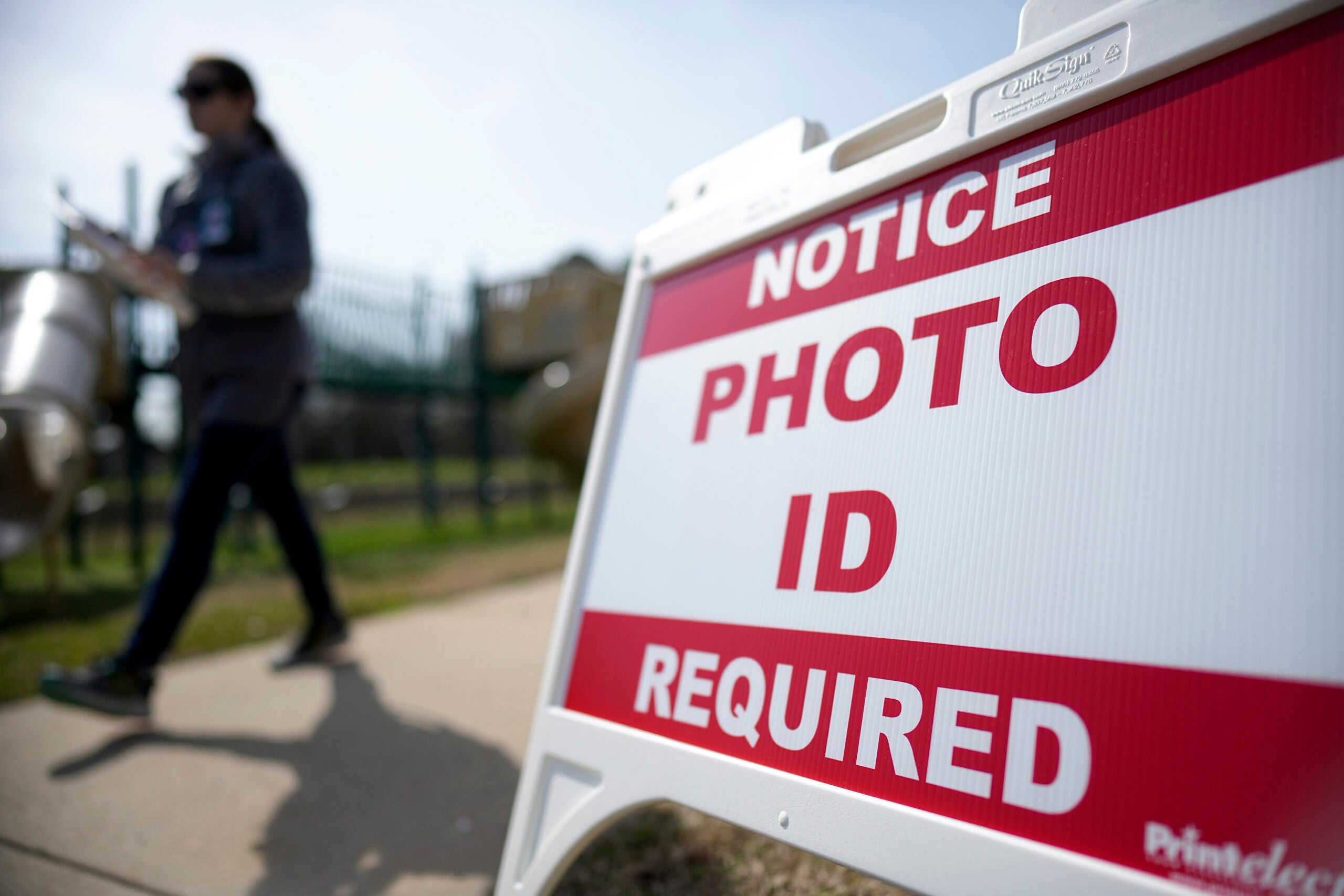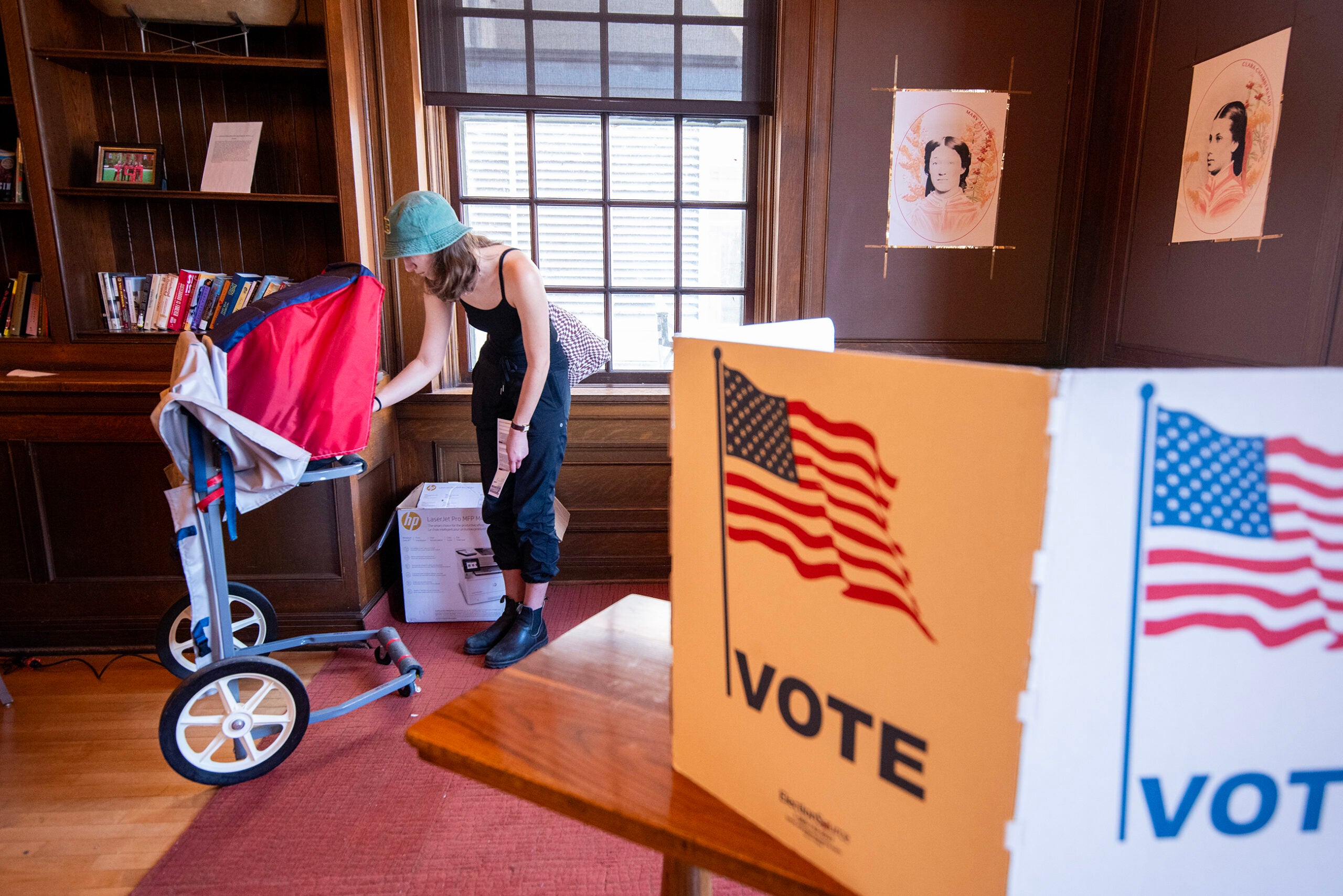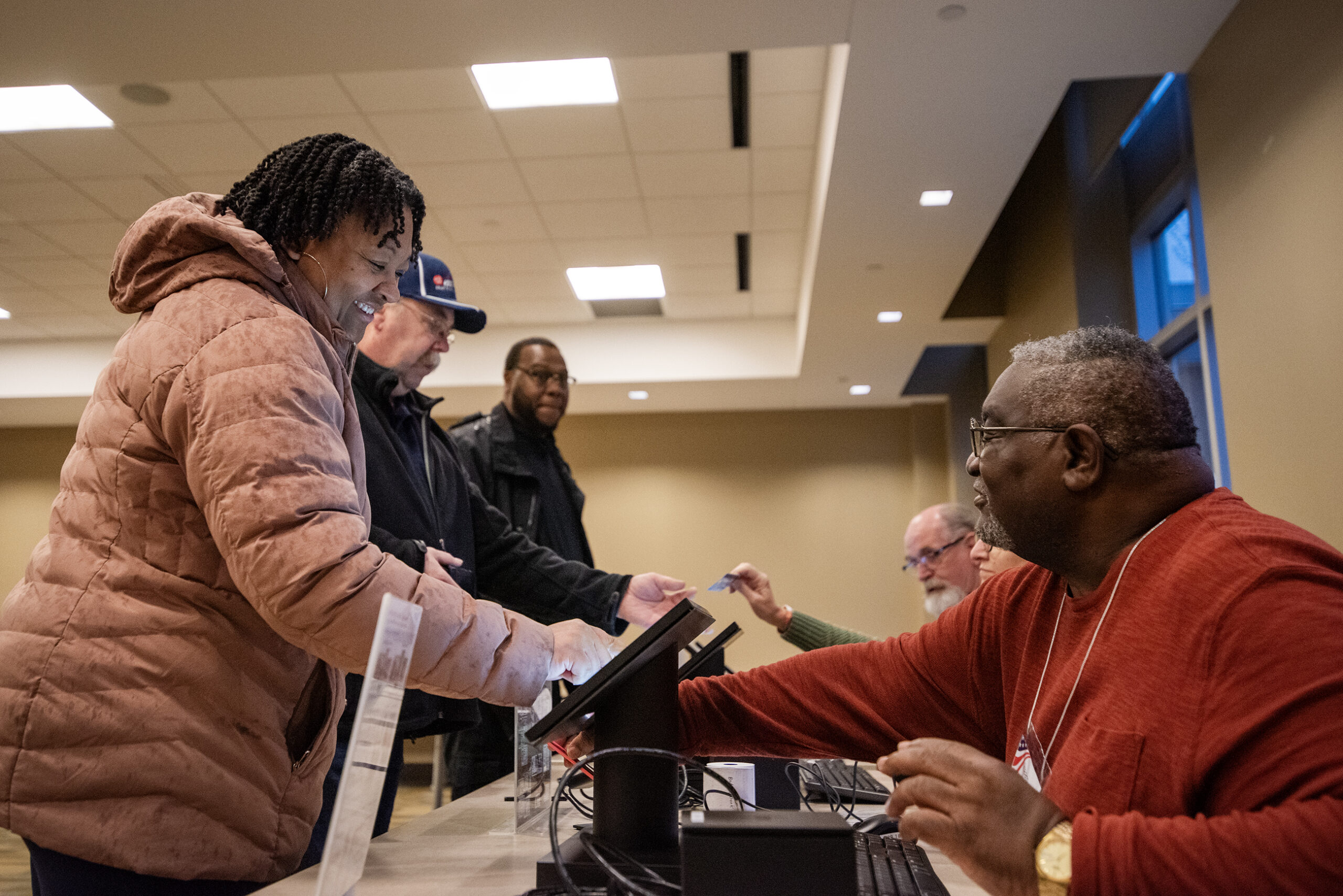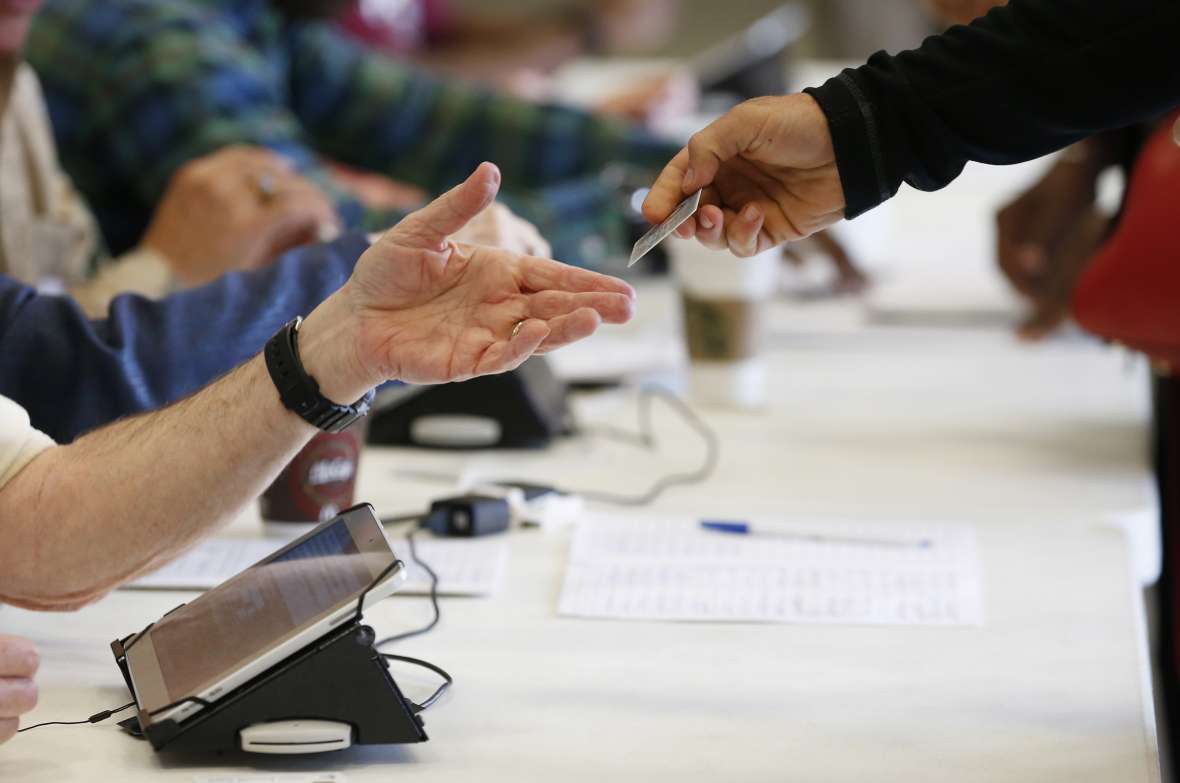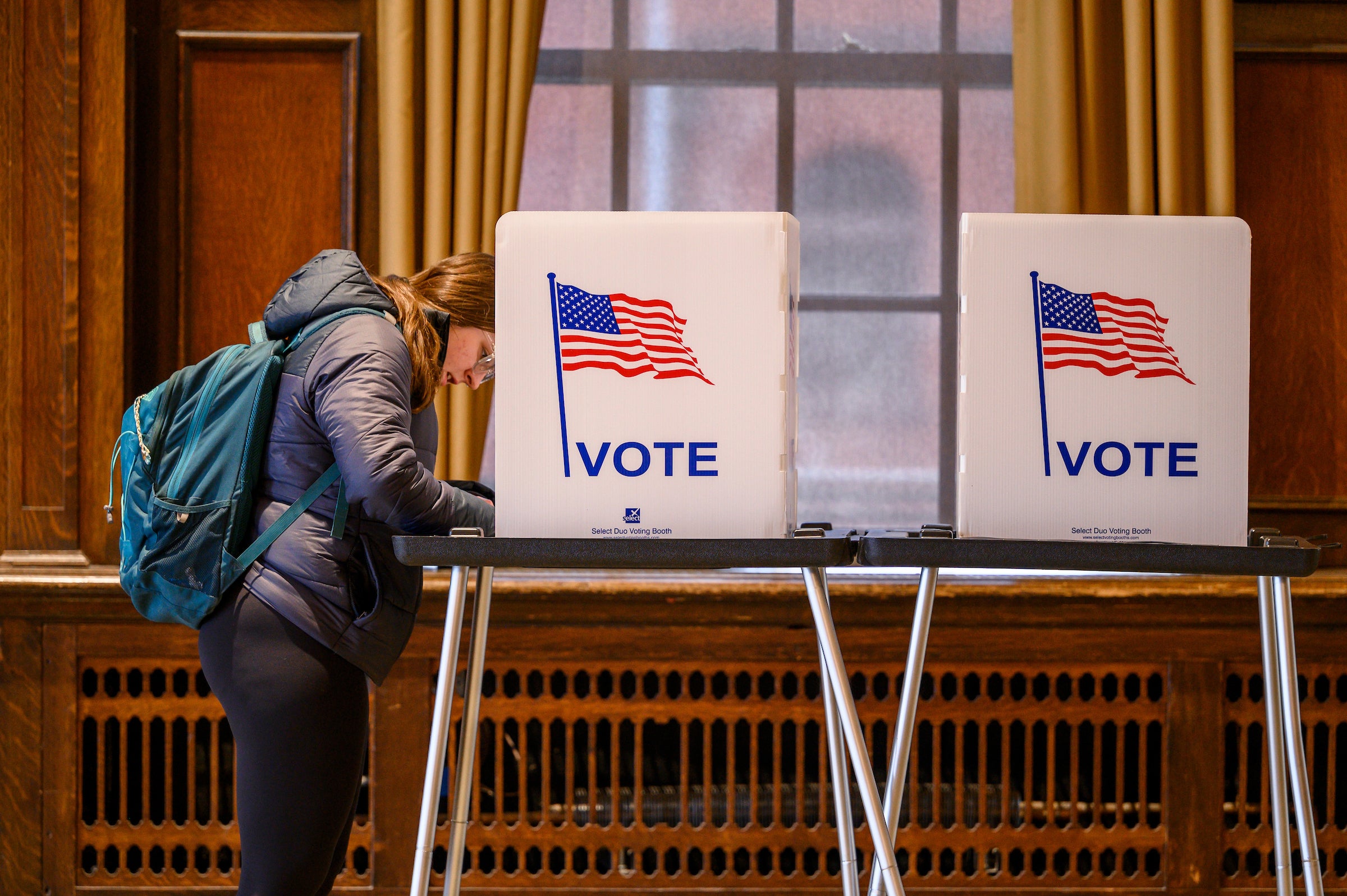Sites in 20 Wisconsin cities took part in National Voter Registration Day efforts Tuesday.
The event comes a day after a University of Wisconsin-Madison study showing the state’s voter ID law lowered turnout last year.
The study from UW-Madison estimates that up to 23,000 people in Dane and Milwaukee counties did not vote in November 2016 because of the state’s voter ID law.
Stay informed on the latest news
Sign up for WPR’s email newsletter.
The Milwaukee Journal Sentinel reports that between 16,800 and 23,250 voters in two of the state’s most Democratic counties did not vote because of the law.
Shauntay Nelson of the group Wisconsin Voices says part of the problem was just confusion, and she says events like National Voter Registration Day can cut through that.
“Our intention is to partner with as many people as possible to educate individuals and to really begin to help them to understand that there really are avenues,” Nelson said.
Nelson recommends going to the My Vote Wisconsin website to register online. The League of Women Voters of Milwaukee County has been registering high schoolers to vote as they turn 18 and is also signing up newly sworn-in citizens.
The survey was mailed to 2,400 registered voters living in the two counties and who did not vote. Of those, 293 people returned questionnaires as part of the survey.
Only 7 percent said they believed they did not have the types of identification necessary under the law, and did not vote as a result. Many respondents said they did not vote for reasons unrelated to the voter ID law.
Dane County Clerk Scott McDonell funded the study with county property taxes. McDonell is a Democratic opponent of the law.
African-Americans and low-income people were affected the most, according to the study. Milwaukee County Clerk George Christenson said he’s “furious to see that Jim Crow laws are alive and well.”
The governor’s office says the ID law has protected the “integrity of the voting process.”
On Tuesday, Gov. Scott Walker said confusion related to court decisions over the voter ID law may have reduced voter turnout last year.
“I think part of it’s the confusion you saw between the courts at one end, at one point saying it wasn’t legal, another time eventually saying it was legal,” Walker said. “My hope and expectation going forward would be that it would ultimately be a matter of once people know we want to make it easy to vote but hard to cheat, and as long as people know the rules well in advance.”
Wisconsin’s voter ID law from 2011 has seen a series of court challenges, appeals and decisions before it was used for the first time in a Wisconsin presidential election last year.
Some Democrats say Walker and other Republicans deliberately wanted to confuse people to keep citizens away from the ballot box.
Editor’s Note: This story was last updated at 5:11 p.m. Tuesday, Sept. 26, 2017.
Wisconsin Public Radio, © Copyright 2025, Board of Regents of the University of Wisconsin System and Wisconsin Educational Communications Board.
